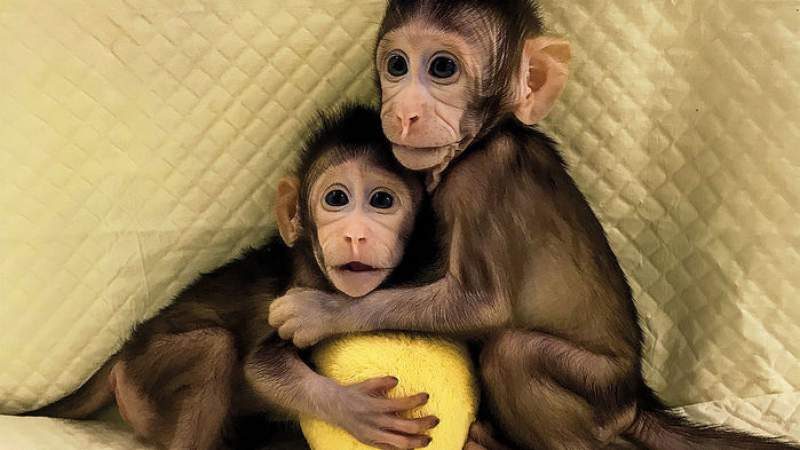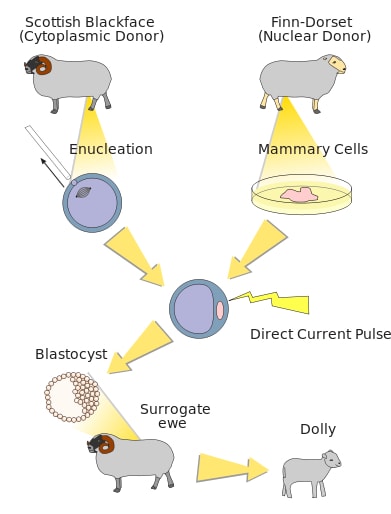China Successfully Cloned Monkeys – Are Humans Next?
Ron Perillo / 6 years ago

Cloned Monkeys!
It was over 21 years ago now when University of Edinburgh scientists successfully cloned the first mammal. Its name is “Dolly”, paving the way for further advancements in genetic research. Now Chinese researchers have moved the needle even further towards actual human cloning, by successfully cloning macaque monkeys.
New Cloning Techniques

The “Dolly method” of cloning animals is known as Somatic Cell Nuclear Transfer (SCNT). It involves taking the nucleus of a cell from a tissue, and inserting it into an animal egg. However, this is not just any regular egg implantation. The egg’s own DNA-carrying nucleus is taken out while leaving the surrounding cytoplasm intact. Then together with the nucleus of a quiescent donor cell, electricity application through gentle pulses is necessary.
Just like Dr. Frankenstein breathing life into his creation via electricity, these pulses prompts the egg to accept the new nucleus and all the DNA it contains as though it were its own. The electricity also triggers bio-activity and starts cell-division. After a week, implantation into a surrogate ewe follows until term.

Cloning a monkey provided several challenges to the researchers. According to Mu-Ming Poo, director of the Chinese Academy of Sciences Institute of Neuroscience in Shanghai, China, they were successful due to the use of several compounds that encourage cell reprogramming. These compounds have never seen use before on primates, resulting in success. However, their result is still not optimal, resulting in just two healthy baby macaques born from more than 60 surrogate mothers.
They were also unable to reprogram adult cells, using fetal monkey tissue instead. The research nonetheless is a breakthrough in genetic engineering. Poo states that their new approach is more customizable. Moreover, it can produce a greater number of genetically identical animals than “embryo splitting”.
The two surviving macaque newborns go by “Zhong Zhong” and “Hua Hua”. Which closely translates to “Chinese Nation” and “People”in Mandarin.
Human Cloning Next?
China has different standards when it comes to biomedical ethics in comparison to the West. Which is why the implications of this research is a curious one. Even research on primate cloning is not particularly popular outside of China. Primarily because it is costly and due to ethical concerns. In fact, there is an outright ban on human cloning and experiments in the West. Even cloning research on non-human primates has a negative stigma.
Although even Poo does not believe research in human cloning is necessary. He even agrees that a minimum number of animals should be used. However, he wishes that the West would be more open to the advantages non-human primate research.
There are some advantages in primate cloning as it could bring about advancements in the treatment of certain diseases which are common in primates. This includes Alzheimer’s and other neurological disorders.
“Once we demonstrate the cloned monkey’s usefulness in curing disease, I hope [Western societies] will gradually change their minds.” argues Poo.



















